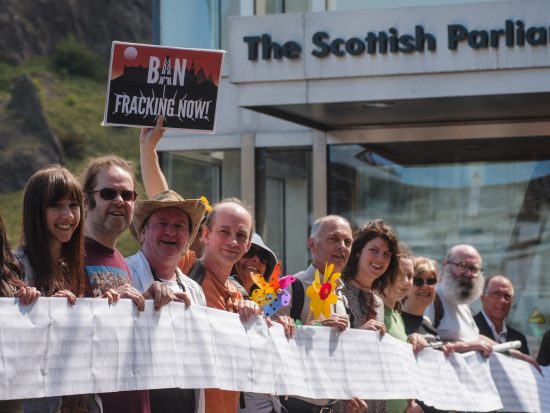It has been 100 days since the European Commission started its mandate and we have taken the time to dive into their activities to date.
We acknowledge the Commission’s continued focus on energy policy but we’re deeply concerned about the apparent tunnel-vision pursuit of innovation, competitiveness and economic growth at the expense of people and planet. This narrow approach risks sidelining the urgent need for a just and fossil-free future. Without a bold, integrated vision, Europe will fail to phase out fossil fuels at the necessary pace, protect the most vulnerable, and empower citizens to take control of their energy future.
A Just Energy Transition Starts with Phasing Out Fossil Gas
Whilst the Clean Industrial Deal has been heralded as the cornerstone of the first 100 days, the Commission must ensure that Europe’s climate ambitions, as reflected in the 2040 targets, are not subordinated to an industrial policy that turns a blind eye to the escalating human and material costs of inaction.
We urgently need 2040 climate targets that reflect the scale of the climate crisis, not the influence of industry lobbying. Furthermore, the EU cannot meet its own climate commitments, much less its historical climate responsibility, while remaining locked into fossil gas. The continued reliance on gas, and promotion of false solutions such as Carbon Capture and Storage, undermines Europe’s credibility as a climate leader and deepens inequalities both within and outside the EU. A clear commitment to phasing out gas would not only accelerate the shift to renewables but also prevent the continued diversion of public funds into stranded fossil fuel assets. Ambitious action on fossil fuels and the full deployment of energy-saving measures, including electrification, circularity and energy efficiency are essential for aligning Europe’s industrial strategy with its climate leadership aspirations.
Social Justice Must Be at the Heart of the Energy Transition
An energy transition that does not actively address inequality will fail. The Commission’s focus, in the new mandate, on housing affordability is an important step, but it must be part of a broader strategy that ensures vulnerable communities are not left behind in the shift to clean energy. Priority should be given to renovating and making full use of the existing housing stock therefore minimizing environmental impacts and optimising limited funding. Moreover, efforts to ensure housing affordability must address social inequities by focussing financial and technical support on low-income and vulnerable groups, while simultaneously providing a clear and accessible pathway for these communities to transition to clean energy. Without such integration, policies risk perpetuating harmful systems that undermine both human and environmental health. This would trap low-income households in outdated, inefficient energy systems, exacerbating societal inequities, ultimately lining the pockets of fossil fuel executives at the expense of the most disadvantaged.
At the same time, energy communities represent a key pillar of a fair transition, enabling citizens to take ownership of their energy future, lower costs, and contribute to Europe’s energy resilience. However, real progress is stalling due to persistent regulatory and financial obstacles in member states. While we welcome the proposed Citizen’s Energy Package and proposed Action Plan on Energy Communities, the Commission’s continued support will be important to ensure member states deliver their commitments to support citizens’ involvement in the energy system.
The decisions made by the Commission will determine whether Europe delivers an energy transition that serves people and the planet or one that continues to entrench inequality and fossil fuel dependency. All of Europe’s citizens deserve the right to affordable renewable energy and to participate in an energy system that serves their needs.
Related Content
We think you’d also like:

Gas
Stopping climate breakdown means keeping all fossil fuels in the ground – including gas. Governments and banks must stop financing gas pipelines and terminals which would lock us into a fossil-fuel future.






